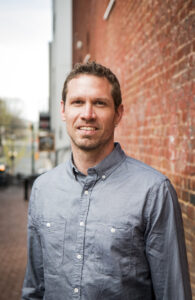Confronting White Supremacy in the American Church (Oxford University Press, coming spring 2020)
By Kristopher Norris
Book Description
Witnessing Whiteness is a scholarly yet accessible book that analyzes the current racial climate of American Christianity. It argues that, due to its role in the origins and proliferation of white supremacy, the white church and its theology (and theologians) have a special responsibility to work to dismantle racism. This work begins by witnessing our own whiteness, or uncovering the ways that our theology and church practices are influenced by white supremacy. The white church must then engage an ethic of responsibility to confront our racism through practices of remembrance, repentance, and reparation.
The book uncovers this responsibility ethic at the convergence of two prominent streams in theological ethics: the predominantly white witness theology and black liberation theology, specifically examining the work of the major figures of these two streams: Stanley Hauerwas and James Cone. Then, employing their shared resources and attending to the criticisms liberation theology directs at traditionalism, it proposes concrete practices to challenge the white church’s and white theology’s complicity in white supremacy.
For a preview of some of the arguments in the book, check out his article in the Journal of Religious Ethics, “Witnessing Whiteness in the Ethics of Hauerwas.”
Kristopher Norris is Visiting Distinguished Professor of Public Theology at Wesley Theological Seminary where he works for the Center of Public Theology and co-directs its National Capital Semester for Seminarians program. He received his PhD from the University of Virginia in Theology, Ethics, and Culture, as well as Masters degrees from Duke Divinity School and Candler School of Theology. He is also the author of two previous books, Pilgrim Practices and Kingdom Politics: In Search of a New Political Imagination for Today’s Church, as well as numerous articles.
Fellow travelers are scholars, activists, and practitioners that embody the ideals and commitments of the Project on Lived Theology. We admire their work and are grateful to be walking alongside them in the development and dissemination of Lived Theology.

